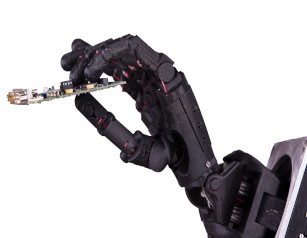FAIR: Future of Artificial Intelligence Research
The project aims to develop Artificial Intelligence systems capable of interacting and collaborating with humans, useful in both public and private sectors. It also seeks to reduce the fragmentation of Italian research on the topic, promote critical mass and inclusion, and simultaneously create, retain, and attract talent in the AI field in Italy.
 PNRR Intervention Area: Mission 4 - Education and Research
PNRR Intervention Area: Mission 4 - Education and Research
Component: 2 - From Research to Business
Investment: 1.3 - Extended Partnerships with Universities, Research Centres, Businesses, and Research Project Funding
Duration: 36 months, ending on 31/12/2025
Total project funding: €114,493,643.75
Proposer: National Research Council (CNR)
Objectives of FAIR
The FAIR partnership aims to advance AI-related research by addressing challenges related to model accuracy, implementation efficiency, cultural acceptability, and AI sustainability in a holistic manner.
The project aims to:
- develop and adopt reliable, human-centred AI for both the public and private sectors;
- develop policies and services based on AI use in the public sector;
- foster talent attraction in this field.
Project Structure and Participation
Foundation Composition
Universities and Research Institutes
- National Research Council - CNR
- Alma Mater Studiorum - Università di Bologna
- National Institute of Nuclear Physics - INFN
- Politecnico di Milano
- Politecnico di Torino
- University of Rome "La Sapienza"
- International School for Advanced Studies - SISSA
- Scuola Normale Superiore
- University of Bari "Aldo Moro"
- University of Modena and Reggio Emilia
- University of Naples "Federico II"
- University of Calabria
- University of Catania
- University of Pisa
- University of Trento
Private Entities
- National Interuniversity Consortium for Informatics - CINI
- Bruno Kessler Foundation - FBK
- Italian Institute of Technology - IIT
- Campus Bio-Medico University of Rome
- Luigi Bocconi University
- Bracco Imaging S.p.A.
- Deloitte Risk Advisory S.R.L S.B.
- Expert.ai S.p.A.
- Intesa Sanpaolo S.P.A.
- Leonardo S.p.A.
- Lutech S.p.A.
- STMicroelectronics s.r.l.
Areas of action
Activities are divided into 10 areas:
- Spoke 1 - Human-centred AI (leader: University of Pisa)
- Spoke 2 - Integrative AI (leader: Bruno Kessler Foundation)
- Spoke 3 - Resilient AI (leader: University of Naples "Federico II")
- Spoke 4 - Adaptive AI (leader: Politecnico di Milano)
- Spoke 5 - High-quality AI (leader: University of Rome "La Sapienza")
- Spoke 6 - Symbiotic AI (leader: University of Bari "Aldo Moro")
- Spoke 7 - Edge and Exascale AI (leader: Politecnico di Torino)
- Spoke 8 - Pervasive AI (leader: Alma Mater Studiorum - Università di Bologna)
- Spoke 9 - Green-conscious AI (leader: University of Calabria)
- Spoke 10 - Sustainable Bio-Socio-Cognitive AI (leader: Italian Institute of Technology)
Project team
University of Bologna team
Scientific Coordinator
Prof.ssa Michela Milano
Teaching and research staff
- Roberto Amadini
- Andrea Asperti
- Daniele Bonacorsi
- Pierluigi Contucci
- Giacomo De Palma
- Elena Esposito
- Luciano Floridi
- Maurizio Gabbrielli
- Francesca Lagioia
- Andrea Lodi
- Davide Maltoni
- Mauro Mangia
- Paola Mello
- Michela Milano
- Mirco Musolesi
- Andrea Omicini
- Chiara Panciroli
- Sergio Pastorello
- Valentina Presutti
- Antonino Rotolo
- Riccardo Rovatti
- Giovanni Sartor
- Laura Sartori
- Claudia Scorolli
- Paolo Torroni
- Cinzia Viroli
Staff hired with project funds
Researchers
- Luigi Asprino
- Marco Berrettini
- Giovanni Ciatto
- Luca Clissa
- Andrea Galassi
- Davide Maria Locatello
- Chiara Lucifora
- Alex Marchioni
- Salvatore Messina
- Luca Ratti
- Matteo Turrin
- Susanna Villani
- Stefano Pio Zingaro
- Federica Zonzini
Research Fellows
- Federico Pilati
PhD students
- Francesco Balzan
- Nicolò Gibelli
- Nicolas Lazzari
- Alessandro Maggio
- Marco Sanchi
Involved Departments
- Department of Electrical, Electronic, and Information Engineering "Guglielmo Marconi" - DEI
- Department of Physics and Astronomy - DIFA
- Department of Computer Science and Engineering - DISI
- Department of Economics - DSE
- Department of Legal Studies - DSG
- Department of Education Studies "Giovanni Maria Bertin" - EDU
- Department of Philosophy - FILO
- Department of Modern Languages, Literatures, and Cultures - LILEC
- Department of Mathematics - MAT
- Department of Political and Social Sciences - SPS
- Department of Statistical Sciences "Paolo Fortunati" - STAT
AI Systems Capable of Interacting in Complex Social Contexts
The University of Bologna, within activity area 8, aims to develop Pervasive Artificial Intelligence systems. These systems should be capable of interacting and collaborating with humans, perceiving, and acting within constantly evolving contexts, being aware of their limitations and adaptable to new situations, and mindful of the environmental and social impact of their implementation.

